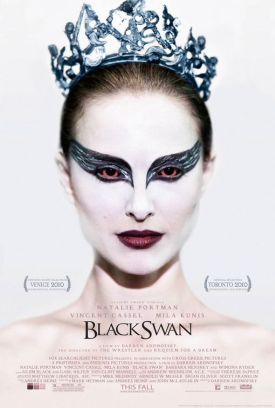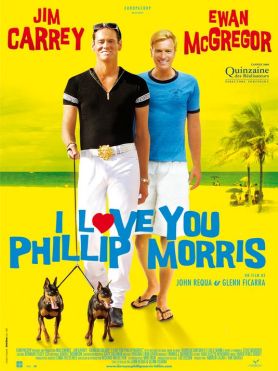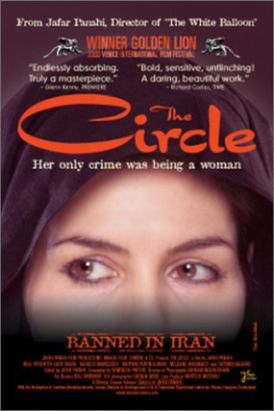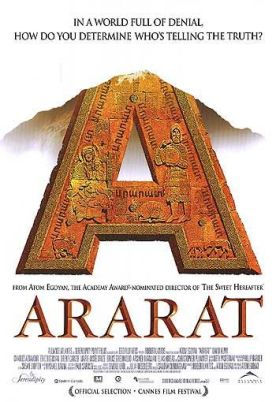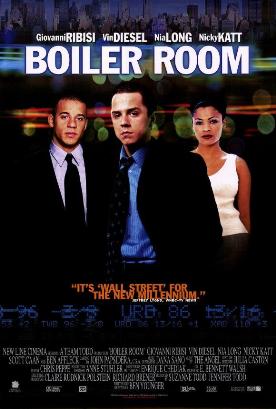Black Swan
Writing in Slate, Dennis Lim of The Village Voice claims that Darren Aronofsky’s Black Swan — a movie which, by the way, he regards as “a schizoid piece of high-minded trash” — is not so much an exercise in “camp” (like Showgirls, for instance) as it is “camp about camp.” This is a clever idea, if a trifle too much like inside baseball for the critical fraternity, but I wonder if it can be quite right? Or, perhaps, just as two negatives make a positive, so “camp about camp” equals some kind of anti-camp — a possibility that Mr Lim also briefly considers before arriving at his convoluted conclusion. For he doesn’t seem to me quite to take account of what, in some ways, an old-fashioned, pre-camp sort of movie Black Swan is. Unfortunately, it turns out to be the ways in which it is not old-fashioned at all but bang up-to-date that are its undoing.
Not that its failures should take away from the remarkable fact that Mr Aronofsky (Pi, Requiem for a Dream, The Wrestler) appears not to have got the message that everybody else got a generation and more ago and that the popular culture has been insisting on ever since, namely that sex, or “sex,” is not connected to matters of good and evil — or even, apart from questions of personal loyalty and betrayal, right and wrong — anymore but is instead just good clean fun. Black Swan is a kind of nostalgic throwback to the period of Edenic cultural innocence before anyone had heard of camp, which is now more often known as “post-modernism.” Since camp moved in to the center of our culture and drove everything else out, it has become increasingly difficult to imagine such a time, before camp detoxified sexual intimacy and drained it of its former moral and honorable significance. Henceforth,”sex” has come to mean only the hydraulic elements of our reproductive systems, and people have forgotten that it ever meant anything else.
That’s why, from the time that Susan Sontag defined camp in 1964 as the “sensibility that, among other things, converts the serious into the frivolous,” right down to Lady Gaga it has hardly been possible anymore to treat sex with the seriousness that nearly everyone used to think it deserved. Not only was everything new in art, music and literature automatically produced in the mocking and ironic vein, all the works from the past when sexual seriousness and significance were still possible were retrospectively turned into self-parody. Miss Sontag herself cited Tchaikovsky’s Swan Lake as one of her top examples of camp. With its allegorical association of sex and death, the ballet was all very well for the Victorians, but the idea of playing it straight in this day and age had become a bore by ‘64 and would now be all but unthinkable to most producers, let alone film-makers.
Yet Mr Aronofsky has essentially adapted the ballet itself into a film about the ballet. In his pretend production of Swan Lake, mounted by an imperious French director named Thomas (Vincent Cassel), the rivalry between two dancers reduplicates that of the ballet itself between two swans. The black swan, symbolizing the dark, destructive, Dionysian aspect of sex, and the white swan as the representation of feminine purity become one in the lovely person of Natalie Portman, who seems to have suffered for her art almost as much as her character, Nina Sayers, does in the film. She plays a sexual innocent, still surrounded by her girlish stuffed animals and living with her dominant stage-mother (Barbara Hershey), who is living her own balletic dreams through her daughter. Just right for the Swan Queen, says Thomas, she must learn to go to the dark side in order to play her dusky counterpart as well, since doubling the roles by the same dancer is his brilliant insight into the ballet.
Accordingly, he advises her to go home and “touch yourself.” When he sexually assaults her at rehearsal, he says: “That was me seducing you” — not, by the way a definition of “seducing” that most people will be very happy about — while “what I need is for it to be the other way around.” Eventually she takes lessons in seduction from her understudy and rival for the part, Lily (Mila Kunis), who may or may not have self-interested motives for befriending her and with whom she may or may not have some mildly titillating girl-on-girl sex that may or may not in itself be enough of a reason for some to want to see the film — or to give it an Oscar nomination.
By that I mean that this sex scene between the two women, along with a couple of others, does indeed take place on the screen, but we are led to suppose that even the intensity of their mutual ecstasy may only be one of Nina’s increasingly disturbing hallucinations — as also when she appears to tear strips of flesh off herself or otherwise suffer horrific injuries for the sake of her art. Mr Aronofsky’s coyness about defining for us the boundaries between reality and illusion (which is also a tiresome feature of some of his earlier films that one might have hoped he had grown out of by now) in poor Nina’s life make her ultimate fate indeterminate as well, though we cannot avoid the connection between her last words in the picture, which are “I was perfect,” and death, which is the perfection (etymologically speaking, anyway) of life. Heavy!
I’m sorry but, like the cliché of the ambitious and over-protective mother and the moment where Nina stuffs all her stuffed animals down the garbage shoot in their apartment building, all this is just the tiniest bit over the top. To some extent it is not Mr Aronofsky’s fault, of course, and perhaps we should even admire him for refusing to take direction from our po-mo culture in its imperious insistence that all this kind of thing, this portentous mystification of both sex and art, can no longer be represented either on stage or screen without one’s tongue in one’s cheek. But the extent to which both sex and art are sensationalized here tends rather to confirm than to contradict the “camp” view of Swan Lake as mere self-dramatization. Camp, says Susan Sontag, “sees everything in quotation marks.” I wonder if she could have foreseen a time when we have no choice but to live our lives in quotation marks?
Discover more from James Bowman
Subscribe to get the latest posts to your email.

